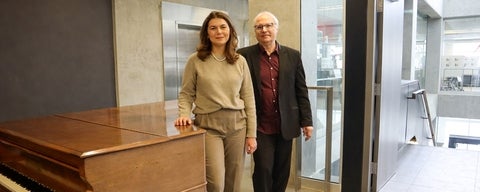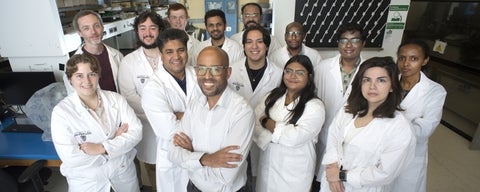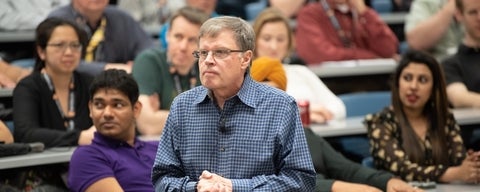Canada's Largest Engineering School
Ranked among the top 50 engineering schools worldwide, Waterloo Engineering is committed to leading engineering education and research.
We are the largest engineering school in Canada, with over 10,900 students enrolled in 2023. In 2023/24, external research funding from Canadian and international partners exceeded $79.3 million, a strong indication of our extensive industry partnerships and the excellence of our engineering research programs.
News
Hungry bacteria engineered to eat cancer tumours by researchers
Bacteria engineered to eat cancerous tumours from the inside out have been developed by Waterloo Engineering researchers in a promising new approach to treatment.
The interdisciplinary research team found two key solutions to use a bacterium called Clostridium sporogenes, which is commonly found in soil and can only grow in environments with absolutely no oxygen, to effectively consume cancer.
Researchers use sunlight to turn plastic pollution into vinegar
An international research team led by Waterloo Engineering has found a way to turn plastic waste into the main ingredient in vinegar using sunlight.
Their discovery could help reduce plastic pollution, especially in water, while also producing acetic acid, a chemical widely used in food production, chemical manufacturing and energy applications.
Alum’s startup gets funds to improve how clothes are made
Tech startup Rotostitch, an automated textile manufacturing company, raised USD $1 million in a pre-seed funding round to accelerate development of its next-generation textile production platform.
Co-founded in 2025 by Waterloo Engineering alum Leah McClure (BASc ’24, mechanical engineering) and Anson Tsang, Rotostitch is on a mission to reinvent garment construction with greater efficiency, starting with the stitch.
Events
2026 Capstone Symposium
Capstone Design is the culmination of the undergraduate student experience, creating a blueprint for innovation in engineering design.
Come check out this year's Capstone Design Symposium!
Wednesday, March 18, 2026 1:00 pm - 4:00 pm EDT (GMT -04:00)
Wednesday, March 18, 2026 1:00 pm - 5:00 pm EDT (GMT -04:00)2026 Capstone Symposium
Capstone Design is the culmination of the undergraduate student experience, creating a blueprint for innovation in engineering design.
Come check out this year's Capstone Design Symposium!
Thursday, March 19, 2026 12:00 pm - 4:00 pm EDT (GMT -04:00)
Thursday, March 19, 2026 12:00 pm - 4:00 pm EDT (GMT -04:00)2026 Capstone Symposium
Capstone Design is the culmination of the undergraduate student experience, creating a blueprint for innovation in engineering design.
Come check out this year's Capstone Design Symposium!






